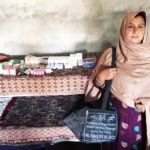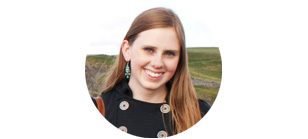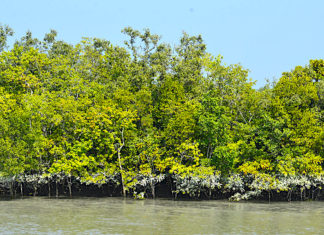Engineers and Entrepreneurs Hold the Key to Reducing Inequality
By Mark Malloch-Brown
So SDG 10, which almost didn't make it, is now as central to development as the fight against absolute poverty was when I and others drafted the original goals. But if there is wide agreement that inequality now poses a direct threat to the stability and health of societies, there is less agreement about what to do about it.A Few Thoughts on Engineering Peaceful and Inclusive Societies
By Dr. Calestous Juma
The first step in pursuing peace is to enhance human capabilities by expanding engineering education, argues Dr Calestous Juma FRS HonFREng, Professor of Practice of International Development at Harvard Kennedy School and author of ‘Innovation and Its Enemies’.Business in Box: A social Innovation to Take SDGs to Every Household
By Dr Abdur Rehman Cheema & Majida Malik
Named “business-in-box” (BiB), a project in rural Pakistan aims to reduce maternal mortality rate and infant mortality rate by increasing awareness and contraceptive prevalence rate.The Difficulties of Establishing Consensus in Development
By Edvin Arnby Machata
The task for civil servants and development professionals cannot be to find a magic bullet solution – because no such solutions exist. The question is rather one of how to establish continuous mechanisms with which problems can be detected, analysed, and solved.
What Has South-South Cooperation Achieved So Far?
Recent statistics do show that south-south cooperation has reeved up, but there is still a long way to go. Statistics also show that the 29 member countries of the OECD’s development assistance committee account for 90% of global development aid and have decades of experience behind them; and south-south cooperation is certainly not going to replace these figures soon. For many, south-south cooperation is an ideological boost rather than something concrete in practice.
From MDGs to Post-2015 Sustainable Development Goals (SDGs): Reflecting on Environmental Sustainability Goal
By Eric Ngang
A renewed thinking about availability of water for future generations using a sustainability thinking that focuses on both humans and natural systems is crucial at the moment when the world is currently reflecting on development goals that shall serve as signpost, guiding development post 2015.
The Post-MDG Agenda: Why Keep Spending in Education?
By Aparna Patankar
"Strong education systems are the foundations upon which we can build the structures and programs to eradicate poverty"














